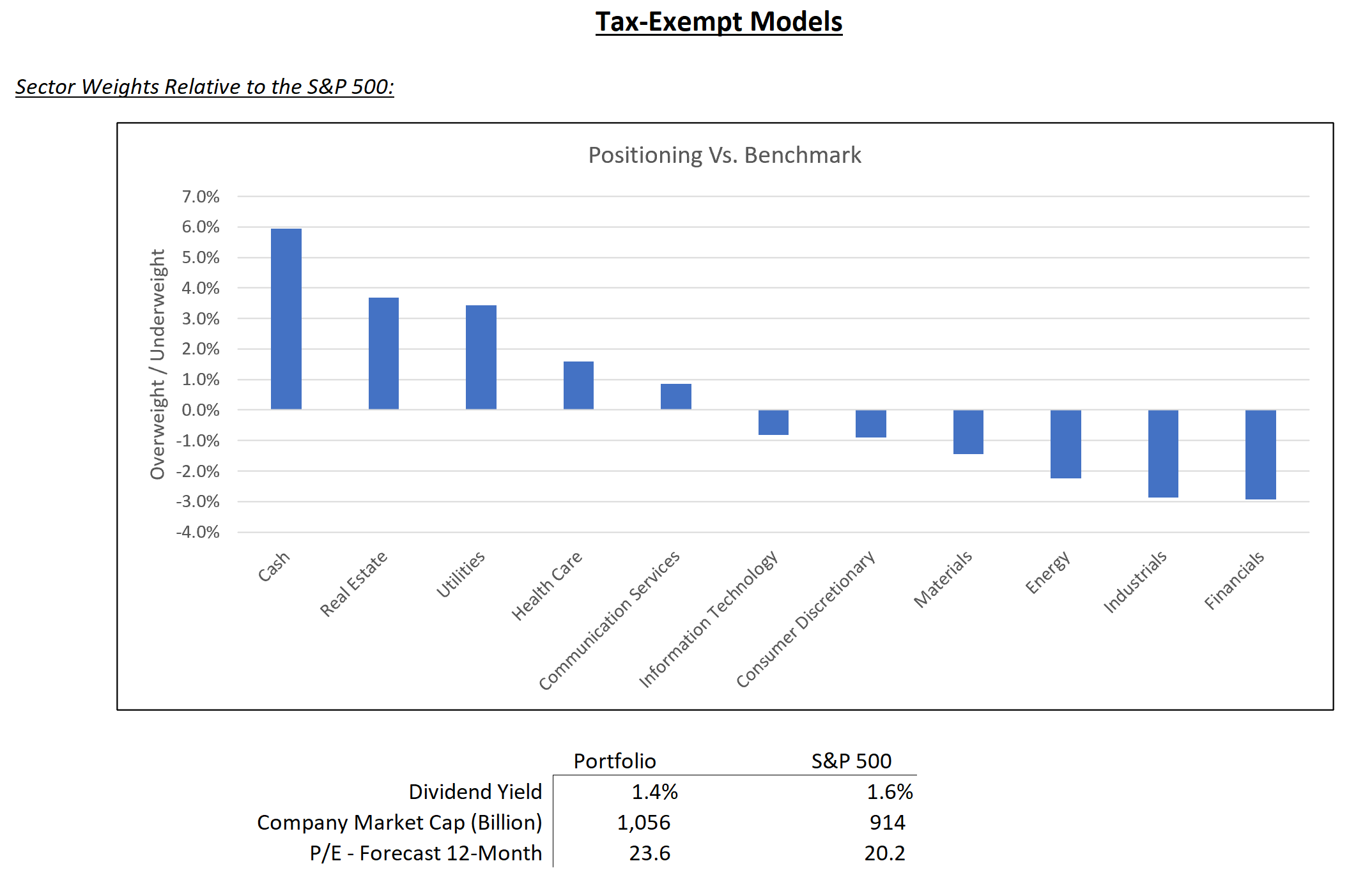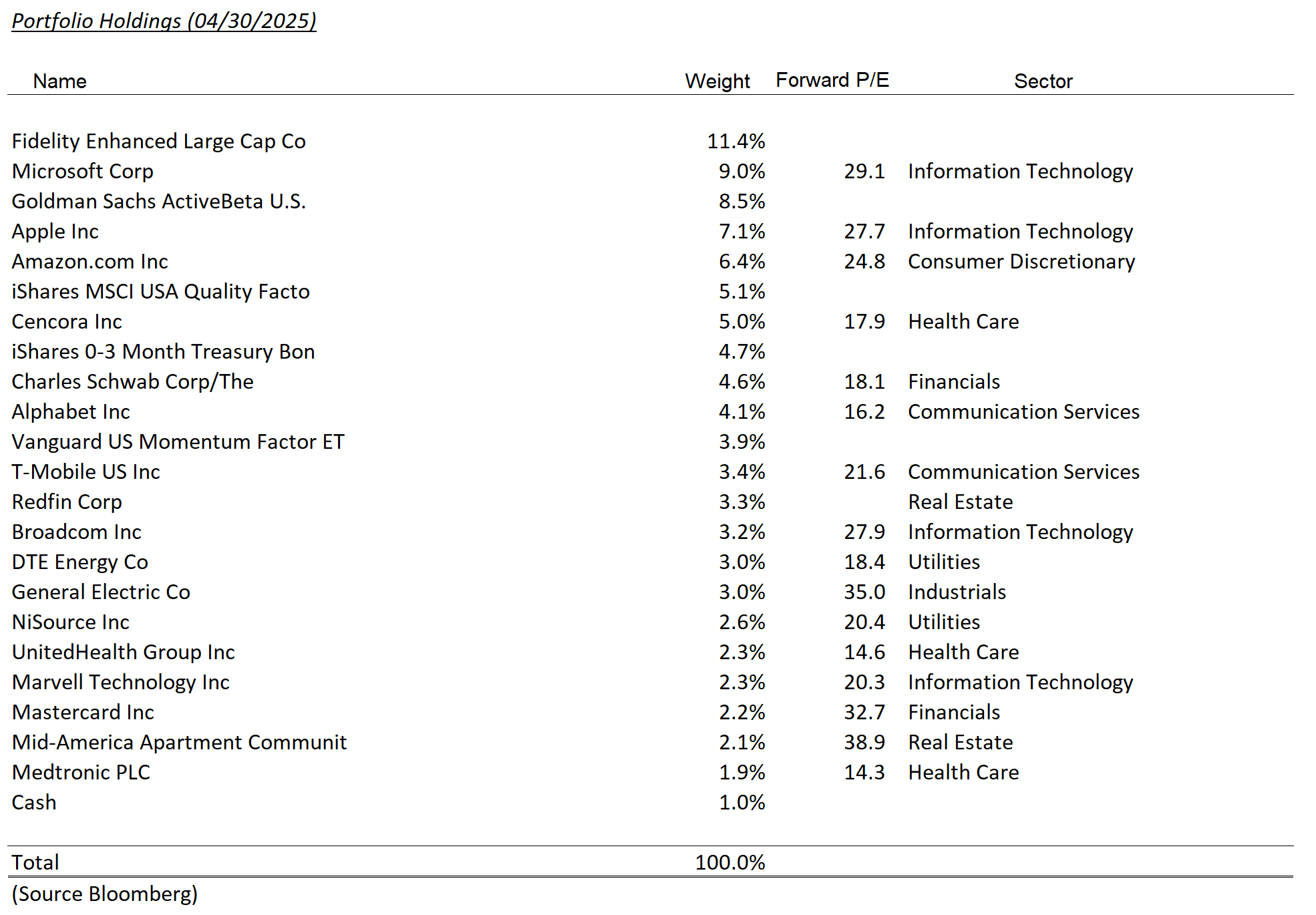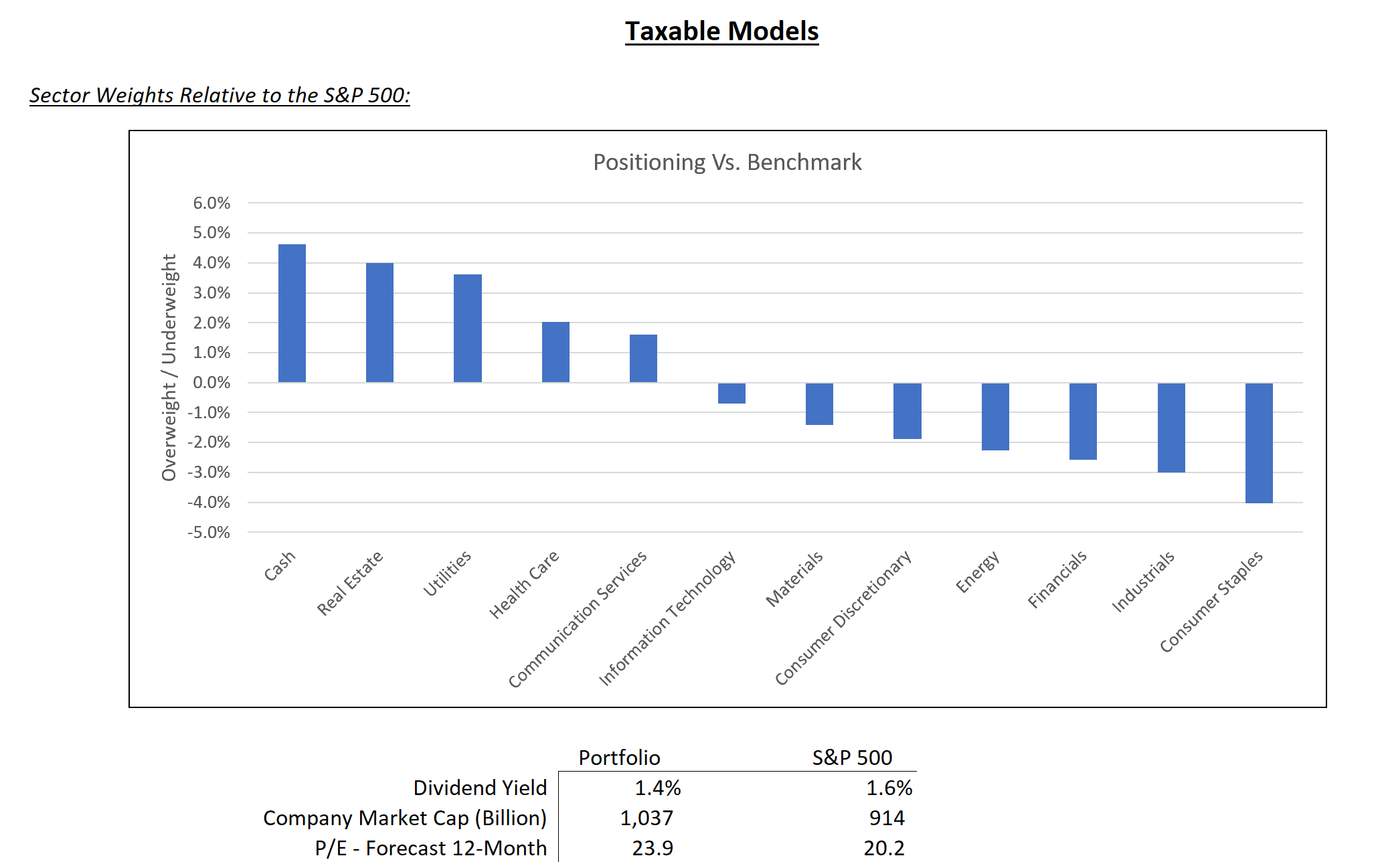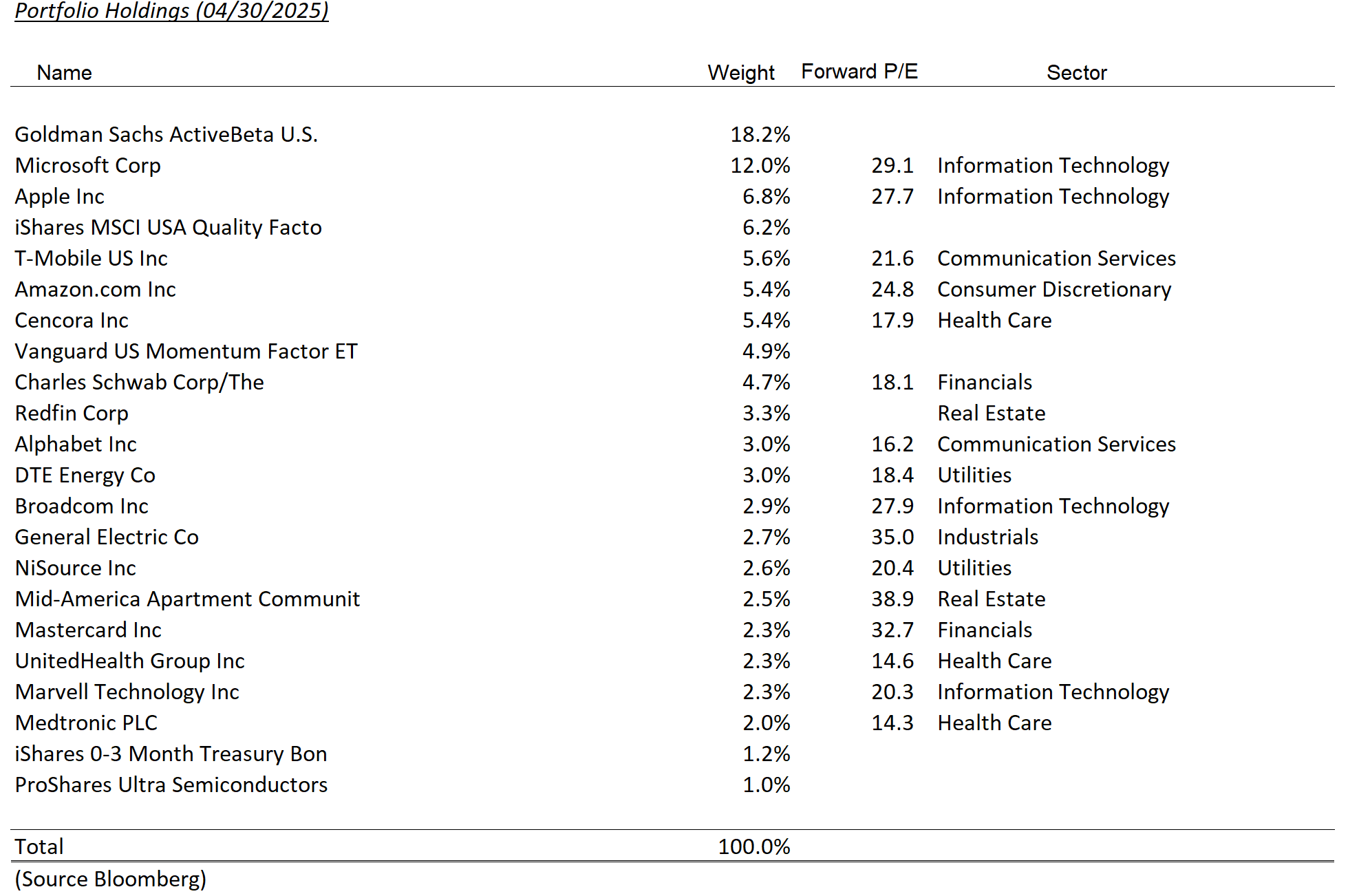April Changes
Tax Deferred
(for mobile swipe left to right)
| New Additions | Complete Sales | Partial Sales | Additional Buys | % of Account Traded |
|---|---|---|---|---|
| RDFN | 3.3% | |||
| RKT | 1.8% |
Taxable
(for mobile swipe left to right)
| New Additions | Complete Sales | Partial Sales | Additional Buys | % of Account Traded |
|---|---|---|---|---|
| RDFN | 3.3% | |||
| RKT | 1.8% |
Summary of Market Activity
In what may come as a surprise to many, the S&P 500 declined just 0.8% in April. While the point-to-point movement was relatively modest, intra-month volatility was intense. The Information Technology, Consumer Staples, and Communication Services sectors outperformed, while Energy, Health Care, and Materials lagged.
Rocket / Redfin: A Strategic Positioning
The top contributor to performance during the month was Rocket / Redfin. We increased our position in early April as we remain optimistic about the company’s long-term strategic direction. Rocket’s share price tends to be volatile, largely due to the strong influence of interest rate movements on its near-term results. When rates fall, refinancing activity typically increases—boosting Rocket’s business prospects.
Following “Liberation Day,” interest rates initially declined, lifting sentiment around Rocket, but later reversed as foreign and hedge fund selling hit the Treasury market. We believe the historical inverse relationship between rates and Rocket’s share price will reassert itself if the economy slows, making Rocket not only a long-term opportunity but also a potential tactical hedge.
You may also notice we now hold Redfin (RDFN) rather than RKT common stock. Rocket is in the process of acquiring Redfin, with RDFN shareholders expected to receive 0.7926 shares of RKT per RDFN share upon deal completion in Q2 or Q3 2025. Initially, we executed a swap in taxable accounts to realize losses in RKT, then followed with swaps in tax-exempt accounts as the discount to the implied merger value widened to nearly 20%. As the spread has since narrowed to around 5%, we will likely rotate back into Rocket if it continues to tighten.
UnitedHealth: A Disappointing Quarter Despite Tailwinds
Another notable name for April was UnitedHealth Group (UNH)—unfortunately for the wrong reasons. UNH once again disappointed investors, citing higher-than-expected care utilization in both its insurance division and Optum Health segment.
What made the report particularly frustrating is that it followed positive regulatory news. On April 7, the Centers for Medicare & Medicaid Services (CMS) finalized a 5.1% rate increase for 2026 Medicare Advantage, up significantly from the 2.2% preliminary ruling—clearly a tailwind for insurers.
Still, during the company’s Q1 earnings call, management reaffirmed its long-term EPS growth target of 13–16%, a statement now viewed with increased skepticism. Given the operational misses and higher costs, investors are understandably questioning the credibility of those projections.
*All figures sourced from Bloomberg. Please note that due to rounding differences, certain data presented may not sum to 100%.




Disclosures
The views expressed represent the opinions of Lincoln Capital Corporation as of the date noted and are subject to change. These views are not intended as a forecast, a guarantee of future results, investment recommendation, or an offer to buy or sell any securities. The information provided is of a general nature and should not be construed as investment advice or to provide any investment, tax, financial or legal advice or service to any person. The information contained has been compiled from sources deemed reliable, yet accuracy is not guaranteed.
Additional information, including management fees and expenses, is provided on our Form ADV Part 2 available upon request or at the SEC’s Investment Adviser Public Disclosure website.
Past performance is not a guarantee of future results. Please note that due to rounding differences, certain data presented may not sum to 100%.
The investments presented are examples of the securities held, bought and/or sold in Lincoln Capital Corporation strategies during the last 12 months. These investments may not be representative of the current or future investments of those strategies. You should not assume that investments in the securities identified in this presentation were or will be profitable. We will furnish, upon your request, a list of all securities purchased, sold or held in the strategies during the 12 months preceding the date of this presentation. It should not be assumed that recommendations made in the future will be profitable or will equal the performance of securities identified in this presentation. Lincoln Capital Corporation or one or more of its officers or employees, may have a position in the securities presented, and may purchase or sell such securities from time to time.

